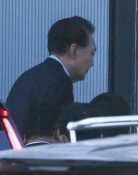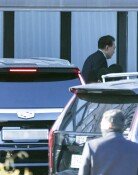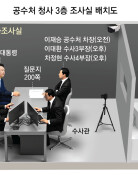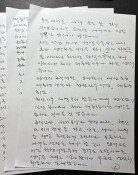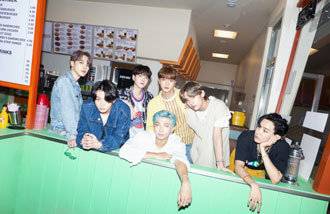Politicians and radical YouTubers
Politicians and radical YouTubers
Posted January. 14, 2025 07:54,
Updated January. 14, 2025 07:54
A 48-second video titled “Listen, Local Representatives of the People Power Party and Party Members Council’s leaders” was posted on a far-right YouTube channel on Wednesday night. The video stated, “We need to stop the execution of the arrest warrant for President Yun Suk Yeol. Please come to the presidential residence immediately.” The video has been viewed over 160,000 times and garnered over 1,300 sympathetic comments. Among the comments were messages from individuals who claimed to have sent money to the sponsorship account posted by the channel’s organizer.
The next day, it was reported that ruling party leadership, including former Land, Infrastructure, and Transport Minister Won Hee-ryong and the chairman of the party council outside the National Assembly, had decided to stand outside the presidential residence every day until the arrest warrant expires. “I don't think it's because of the YouTube video,” said a ruling party official. “Honestly, from a politician’s point of view, it's hard to ignore the voices of hardline supporters on YouTube.”
YouTube greatly impacted the entire process, from impeachment to the declaration of martial law. President Yoon, who declared martial law based on a fraudulent election conspiracy theory propagated by far-right YouTubers, sent an encouraging message to supporters outside the presidential residence after the impeachment vote, saying, “I'm watching your struggles through live YouTube.”
President Yoon's message, delivered on the night of New Year's Day, was met with cheers of “The president is watching us” at the rally outside the presidential residence. Yoon must have been watching, as the situation was also live-streamed on YouTube. Despite being at the center of a month-long social turmoil, the president has continued to rely on far-right YouTube to perpetuate his extreme behavior.
It seems that even ruling party lawmakers conspired with far-right, influential YouTubers. Yoon Sang-hyun, a five-term lawmaker, gave a 90-degree “folder greeting” to Pastor Jeon Kwang-hoon, while Rep. Kim Min-jeon of the ruling party organized a press conference in the National Assembly for an anti-communist youth group that calls itself the “Baekgoldan.” Both Pastor Jeon and the head of the anti-communist youth group are staunch right-wing YouTubers.
These days, the Democratic Party is busy criticizing and accusing the ruling party of doing just that, but the question is whether they are qualified to do so. The Democratic Party invented the tactic of using staunch supporter YouTubers. Every election season, the Democratic Party's leading candidates and current lawmakers and leadership have appeared on Kim Ou-Joon’s YouTube channel to call for support. In the run-up to the last general election, then-candidate Ahn Gwi-ryung, Lee Un-ju, and Jeon Hyun-hee gave a deep bow in response to Kim's “Attention, bow!” chant. Meanwhile, Choi Min-hee, the chairwoman of the Science, ICT, Broadcasting, and Communications Committee, revealed the names and donation bank accounts of first-term Democratic Party members of the committee on Kim's YouTube channel last month, asking for donations.
“You know what the biggest power in the Democratic Party right now is? It's Kim Ou-Joon’s YouTube,” said a pro-Lee Jae-myung member of the Democratic Party of Korea. “Once someone appears on his channel, the donor bank account fills up, and subscribers grow by the thousands.”
It's an unhealthy symbiosis that allows politicians to easily garner polarizing support through far-right or far-left YouTubers while YouTubers reap huge profits from donations and clicks on SuperChat. In an era where politics is completely missing, politicians are unabashedly displaying their ties to powerful YouTubers, fomenting conflict and division.



